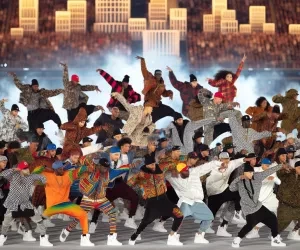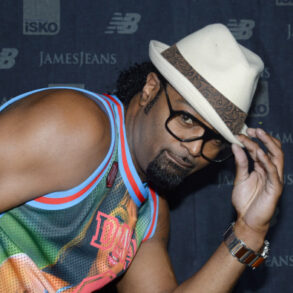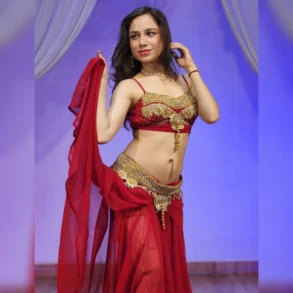
In the sweltering confines of a rehearsal stage in Créteil, France, dancers performed synchronized routines before scattering into various groups. Some practiced handstands and tumbles, while Mourad Merzouki, their choreographer, attentively guided them to perfection.
This was the final day of rehearsals for Merzouki, a renowned French-Algerian choreographer, and his energetic troupe. They were preparing for a major performance at the Olympic Games festivities near the Eiffel Tower in Paris. On Monday, they unveiled the official dance for the 2024 Olympic and Paralympic Games.
The event marked a high point for Merzouki, 50, whose hip-hop style has evolved over three decades from being doubted to widely celebrated.
“It’s great to see that hip-hop dance will be one of the major events watched by the whole world,” Merzouki said after the rehearsal. His group’s showcase took place in front of 13,500 spectators at the Trocadéro Champions Park, a public arena. The performance featured 30 dancers and urban artists, mesmerizing an audience who stood to applaud their effort.
“Spectators were on their feet to applaud these artists from all horizons — dancers, acrobats, and circus artists,” said Merzouki. “It was a real pleasure for us to feel and see the place of dance in this major sporting event.”
Merzouki’s intricate choreography blends elements of martial arts, visual arts, circus, boxing, and live arts to engage audiences of all ages and abilities. Despite the immense pressure, he remains confident, focusing on the positive message he aims to convey through dance.
“I have a lot of pressure because I want everything to go right,” he said. “We want the message of generosity of this dance to raise awareness among as many people as possible. This moment should allow us all to connect.”
Merzouki’s journey from humble beginnings to a global platform has not been easy. In 1996, he founded his dance company, Käfig, despite early skepticism that his hip-hop style would fail to capture large audiences in Europe. However, performing in the United States, where hip-hop originated, brought a different response. Cities like Miami, Los Angeles, and New York embraced his unique style.
Despite his success in America, Merzouki chose to return to France to challenge misconceptions and push boundaries. Over the years, his company has performed more than 4,000 times in France and in over 60 countries worldwide.
“I think that this recognition is due to these 30 years that we have all spent fighting, holding on, believing in our dreams,” he said. “It’s so that precisely this dance can have a place like any other dance in the choreographic landscape.”
Merzouki has kept his routines fresh by maintaining an open mind and selecting dancers from diverse backgrounds, including hip-hop, contemporary, classical, and circus disciplines. He has even invited aspiring dancers to submit videos via YouTube.
“It’s a sign that this dance can be addressed to all audiences,” he said. “With this competition, I think we can say that it’s an honor and that it’s encouraging for the future of this dance.”
French dancer Joël Luzolo praised Merzouki as an influential figure who has elevated street dance to theater stages, offering dancers sustainable careers.
“Back then, it was way harder than now,” said Luzolo, 30, who has danced with Merzouki for five years. “Every year, he tries to raise the level even higher to make people understand what hip-hop is and what it can be. He’s been a really great influence. It can help dancers have a career and life.”
Merzouki is also excited about the reemergence of breakdancing, which will debut as a competitive event in the Paris Games. While some in Paris’ local breaking scene are skeptical of the commercialization, Merzouki sees it as a positive turn.
“Some were for it; some were against it. But I think it’s very good news that breaking was propelled to the forefront into such an important event,” he said. “The DNA of breaking and hip-hop dance is competition. It was battles. It’s a continuation of this great story of hip-hop. I hope the visibility will allow this dance to be better recognized and reach a larger, wider audience.”
After the Olympic showcase, Merzouki will turn his focus to a new show called “Beauséjour” in Lyon, France. He has several upcoming projects with different orchestras and artists, always looking to create as much as possible.
With ambitious plans ahead, Merzouki is eager to present his artistic dance to the Olympic world.
“I hope that the public, who thinks hip-hop dance is not for them, can discover a new discipline they didn’t know,” he said. “This is a great moment of visibility. … The symbolism is strong. It’s an artistic recognition. French youth from working-class neighborhoods, dancing in the heart of Paris.”
This post was originally published on this site be sure to check out more of their content.




